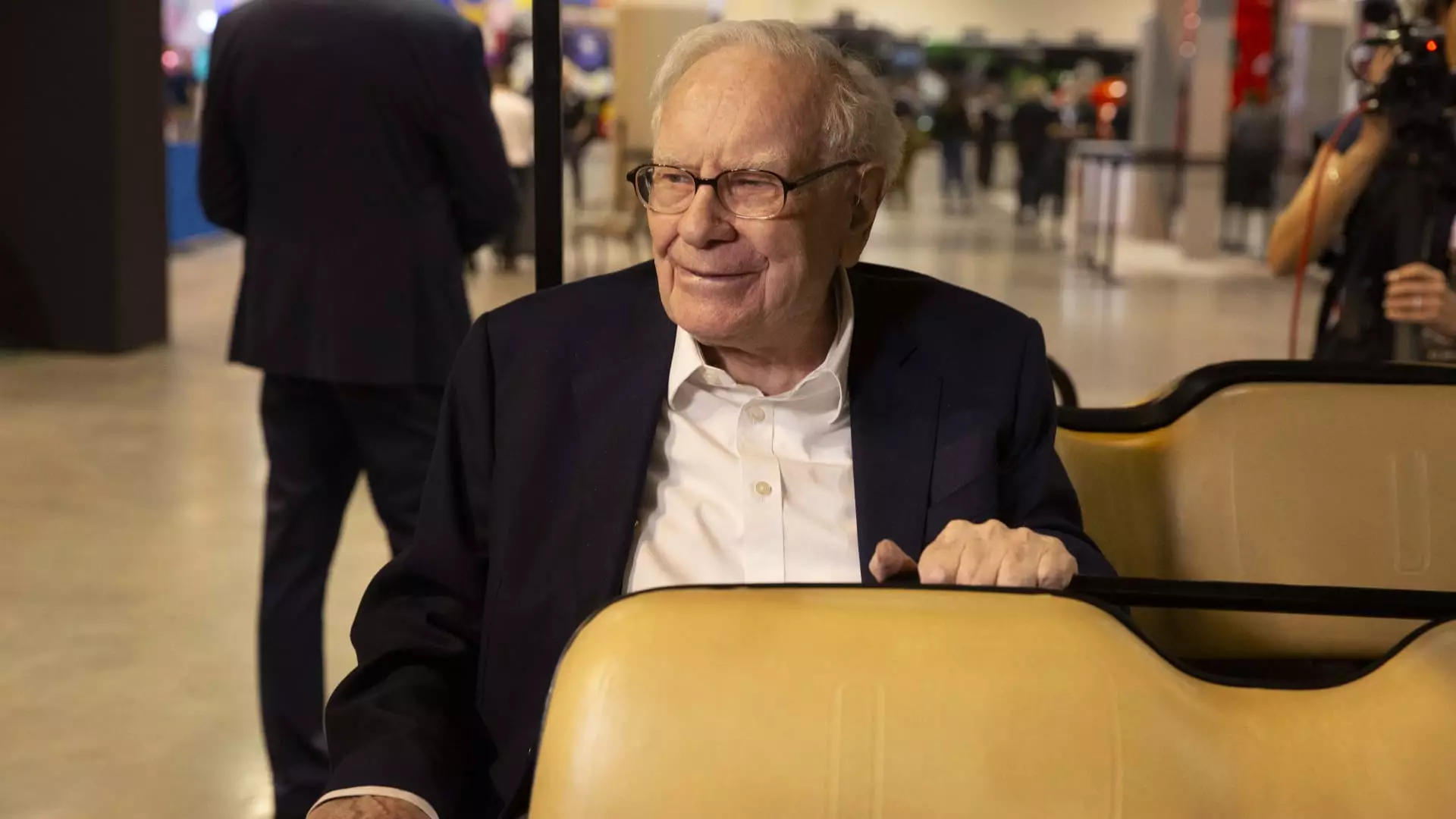Berkshire Hathaway, led by the iconic Warren Buffett, has once again demonstrated the resilience of its business model with a remarkable increase in operating earnings. However, despite the positive financial performance, shareholders are left pondering the fate of the company’s record cash reserves. The latest earnings report reveals a dual narrative—one of prosperity in operational profits and a persistent hesitance to reinvest capital.
The latest report illustrates a staggering 71% increase in Berkshire Hathaway’s operating profit, which rose to $14.5 billion in the fourth quarter. This surge is primarily attributable to the company’s insurance segment, where profits soared by 302% to $3.4 billion compared to the previous year. Such impressive financial results highlight the effectiveness of Berkshire’s operational strategies and the robustness of its wholly owned businesses, including notable entities like Geico and BNSF Railway.
Buffett’s emphasis on value-oriented businesses plays a crucial role in this success. The company’s diverse interests across various sectors offer a substantial buffer against market fluctuations, showcasing Berkshire’s ability to maintain profitability even during challenging economic periods. This remarkable performance should bolster investor confidence in the company’s operational prowess.
While the operational profits paint a rosy picture, investment income tells a different story. Berkshire’s investment gains took a significant nosedive, dropping to $5.2 billion from an astounding $29.1 billion in the same quarter the prior year. This decline serves as a stark reminder of the volatility inherent in equity markets and the challenges that even seasoned investors like Buffett face in identifying attractive opportunities.
Moreover, the company has continued a trend of net equity sales—having offloaded over $134 billion worth of equities in the past year. Notably, Buffett is methodically reducing Berkshire’s stakes in its two largest positions: Apple and Bank of America. This decision raises questions among shareholders about the timing and rationale behind such a cautious approach in a historically bullish market.
Berkshire’s cash reserves have soared to a staggering $334.2 billion, an increase from $325.2 billion in the previous quarter. While this mountain of cash signifies financial strength, it also draws concern. Many shareholders eagerly await strategic maneuvers that could channel this capital into acquisitions or investments. Buffett, however, has hinted at market valuations being a major reason behind this cash accumulation. In his annual letter, he mentioned that “often, nothing looks compelling,” suggesting an environment where potential investments do not meet his standards for value.
Buffett’s continued emphasis on patience and prudence resonates with some investors, particularly as economic uncertainties loom. However, the absence of share buybacks, with zero purchases recorded in both the fourth quarter of the previous year and the early part of this year, has led to restlessness among stakeholders.
Looking ahead, the conservative strategy of maintaining high cash reserves may yield significant advantages during a market downturn. Bill Stone, chief investment officer at Glenview Trust Company, reassured shareholders that Berkshire is strategically positioned to capitalize on potential opportunities when they arise. By avoiding overextension in a heated market, Buffett’s cautious approach could ultimately result in long-term gains.
Furthermore, Buffett’s endorsement of Greg Abek, his successor, reassures investors that the company remains in capable hands. Abek’s ability to identify promising investment opportunities may become crucial as the market landscape evolves.
Berkshire Hathaway’s fourth-quarter earnings reveal a complex interplay between operational success and investment challenges. With a robust cash position sitting atop exceptional earnings, the company is poised for potential growth—but its current hesitance raises questions about future directions. As shareholders grapple with this dichotomy, one thing remains clear: the Oracle of Omaha’s legacy is tightly interwoven with both cautious stewardship and opportunistic foresight. Only time will tell if this balance will culminate in a flourishing next chapter for Berkshire Hathaway.

